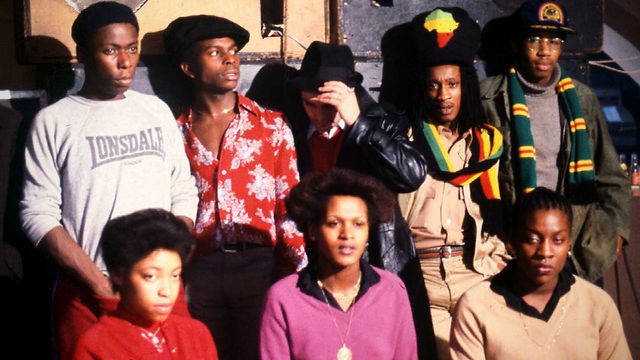In the 1980s, a film reflecting the music and injustices of the time emerged, but its grittiness soon unnerved authorities in London and America, leading to its censor and ban respectively.
Curiously the issues of racism, bigotry, poverty and class which the film touched on nearly four decades ago still remain topics any Black person in London can relate to.
With the Black experience in the UK not being reflected in movies, ‘Babylon’ proved to be the answer and in many eyes from the 1980 to 1990 that it made the rounds, no movie treating Black experiences expertly has emerged.
The film’s honesty in tackling racist acts against Blacks including landlords refusing to rent rooms to people of colour and giving Black British men, who weren’t being seen at the time a face all helped win people over. The film also portrayed the subtle anger of a young Black man pushed against a wall played by Brinsley Forde as ‘Blue’; a Black sound system DJ among a crew of DJs living it out in the early 80s.

Brinsley Forde via IMAGES COURTESY OF WIKIPEDIA COMMONS
Blacks are more likely to be profiled, and stopped by the police both in the UK and U.S. When someone in Blue’s crew punches a white friend who’d been like a brother, it was out of the frustration of the racism they experienced, noted Brinsley Forde to vice.com looking back on the film’s impact.
“Yes, that scene is very emotional. What we have to realize though, is that many Black people have had that same experience. You’ve been to school with your friends, or at work, and you’re shouting to a friend and they can’t say hello because their mother or crew doesn’t want them to speak with you. At times it’s unsaid with non-invitations.
“This scene, when the white friend in Ronnie finding himself separated from the crew of black friend he knew so intimately, we’ve all had that experience as black people. That time when you were figuratively headbutted for being different and not fitting in. We’ve had to come to terms with it, whether it was walking in a place to get a job, and suddenly, your colour made a difference. White audiences seeing that in reverse is very dramatic,” the MBE (Order of the British Empire) honoree further stressed.
On why the film was seen as authentic, Forde observed it wasn’t in the dramatization category, adding director Franco Rosso understood the need to remain real to the experience; he also being an Italian who grew up in a British society. The actors and non-actors were allowed room to be themselves as they were already experiencing covert and overt racism.
But why was the film X-rated in the UK and banned in America?
A woman said “I think it’s the stabbing scene,” adding, “the underdog.”
Forde revealed: “It made sense. America turned their backs on it, and England gave it an X rating, because the idea of the underdog fighting back is too much for some to handle. It’s a different thought process. Could this film incite riots? Could this group inspire others to go against the establishment? Maybe, and that’s what it was. As we’ve moved through the years, we’ve seen banned content for what it was. They thought differently and freed our minds from what we’ve normalized. In the 1980s, there was a great fear of what film could do alone to incite people.”

He stated English Judge Leslie Scarman relying on the film to get the Black perspective for the public inquiry was heartwarming.
Yep, that’s how a film released in 1980 about Jamaicans reveling in reggae, parties and sound systems caused a stir and despite the ban went on to become a cult hit, resonating with reggae heads and Black Londonites.










